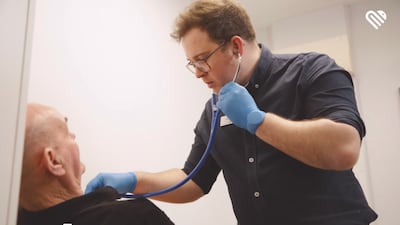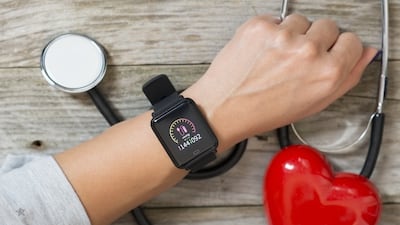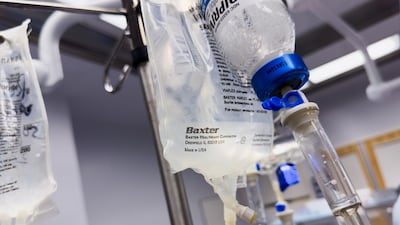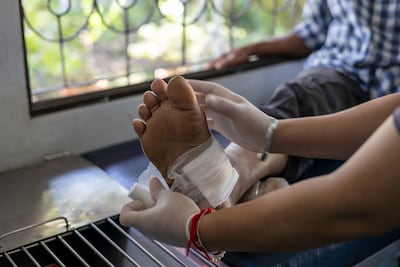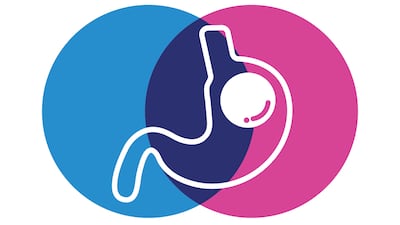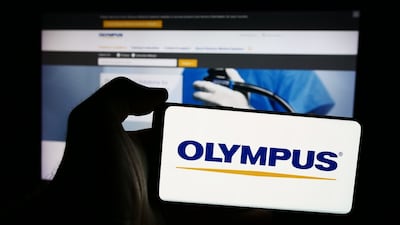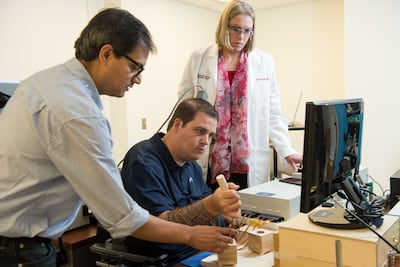Device Area
Cardiology
Medtronic has agreed to acquire Cathworks for up to $585m, converting a long-standing partnership into full ownership as it expands its footprint in coronary physiology and AI-enabled cardiovascular tools.
The US FDA says Abiomed has reported 22 serious injuries linked to an issue with some of its temporary heart pumps that provide support to patients with acute right heart failure.
The US FDA has granted clearance to eMurmur, broadening the use of its AI-powered software platform. The innovative system identifies primary heart sounds to detect abnormal murmurs as they occur.
The US FDA has published a draft guidance on clinical performance testing and evaluation for premarket submissions from manufacturers of cuffless blood pressure measuring monitors, which the agency generally regulates as class II devices.
Combination Products
Medtech Insight spoke with Rambam Medical Center’s Michael Mimouni, who implanted the first 3D-bioprinted corneal graft in a human patient, about his hopes for Precise Bio’s approach. The patient is part of a Phase I trial evaluating PB-001 in patients with corneal edema.
Roche Diagnostics, Intuitive Surgical, Abbott and Edwards Lifesciences all acknowledge tariff headwinds, but stress preparedness, resilience and mitigation. Below is look at how management framed the impact in Q1 vs Q2 earnings calls.
Combination products are no longer fringe – they are the “new normal,” consultant Stephen O’Rourke told Medtech Insight. The EU has the expertise to handle the regulatory complexity, but only if connects the dots between silos. That’s the challenge, he said, and the opportunity.
The US FDA says Baxter has notified customers about an issue with its Novum IQ Syringe Pump that is linked to two deaths and multiple injuries.
Diabetic Care
A warning letter from the US FDA citing concerns of some Abbott continuous glucose monitors will not stop the company from launching a novel diabetes sensor later this year as planned.
BioStem Technologies’ buyout of BioTissue Holding’s surgical and wound-care business adds cryopreserved and sterile technologies, Cryotek and SteriTek, and a direct sales force focused on acute care settings.
Withings announced at CES that its health monitoring app will integrate data from Abbott’s OTC CGM Lingo starting in Q1.
Timed to debut during this week’s CES 2026 technology conference in Las Vegas, the new feature within Abbott’s Libre glucose monitoring software uses generative artificial intelligence to predict how food choices may affect glucose levels.
Diagnostics
The US FDA has warned that Magellan Diagnostics blood lead tests may provide inaccurately high results, particularly with tubes from ASP Global. Magellan’s tests had previously been recalled over inaccurate low results. The FDA also issued warning letters to both firms.
The US FDA has granted clearance to eMurmur, broadening the use of its AI-powered software platform. The innovative system identifies primary heart sounds to detect abnormal murmurs as they occur.
Molecular diagnostics firm SAGA Diagnostics has introduced a colorectal cancer test that can detect even very low levels of cancer biomarkers. The test helps clinicians guide post-surgical treatment decisions.
The US FDA has published a draft guidance on clinical performance testing and evaluation for premarket submissions from manufacturers of cuffless blood pressure measuring monitors, which the agency generally regulates as class II devices.
Gastroenterology
The US FDA has issued an early alert concerning some Axios stent and delivery systems used in endoscopic drainage procedures after receiving reports of serious injuries and deaths linked to the device.
Last year was a busy one for the medtech industry, with major advances in technology as well as big changes at regulatory agencies. Get a peek at the stories our readers couldn't miss.
Shantanu Gaur, CEO of Allurion Technologies, a company that has developed a swallowable gastric balloon, believes that GLP-1 sales could indirectly lead to increased demand for medical device-based bariatric procedures, especially as patients seek alternatives to drug side effects and weight regain.
The US FDA says Olympus has updated its instructions for a device used in many endoscopic procedures after reports of serious injuries. The class I recall follows the FDA blocking imports of other scoping devices from the Japanese firm earlier this year.
Neurology
Cerenovus is recalling multiple products from its Cerepak Uniform, Cerepak Heliform and Cerepak Freeform product lines due to a higher-than-expected failure to detach rate. While customers were sent a safety alert in October, the US FDA announced the recall on Feb. 5.
INBRAIN unveiled a bidirectional "rice-sized" BCI chip partnership, Merck commercialization progress and new speech-decoding trial in France as it advances its graphene-based cortical interface toward commercialization, pending regulatory clearance.
Medtech Insight was invited to moderate a panel discussion with leading experts in neuroscience and AI during INBRAIN’s five-year anniversary in Barcelona, Spain. Panelists discussed the promises, perils in BCI development, neuroethics and outlook.
In this final part of a three-part series, Medtech Insight spoke with a neuroethicist and the first person in a trial using a BCI implant for stimulating hand movement. This story explores ethical considerations that arise when projects can no longer support patients with implanted devices.



